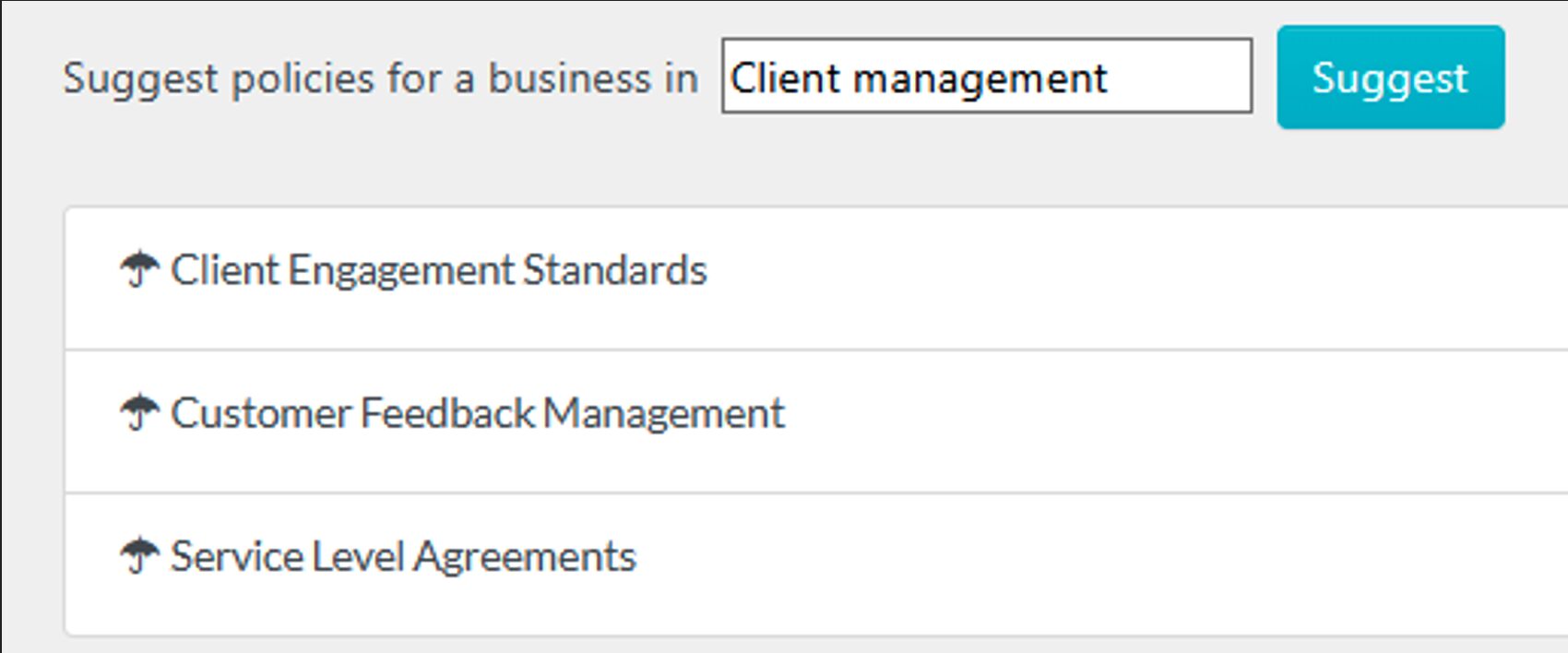댓글 0
등록된 댓글이 없습니다.

✔ Outsourcing payroll may lower administrative concerns, conserve time, and guarantee compliance with tax laws.
✔ Cost savings vary from 18%-35% usually compared to internal payroll processing.
✔ Payroll providers deal with wage computations, tax filings, direct deposits, advantages reductions, and more.
✔ Businesses of all sizes benefit, particularly those without devoted payroll staff.
✔ Choosing the right payroll service depends upon company size, complexity, and need for integration with existing systems.
Every other Friday, Lisa braced herself for what had basically become a continuous source of stress: payroll. As the workplace supervisor for a growing home services business, she wore lots of hats: scheduling jobs, managing billings, handling HR jobs, and more. Payroll was simply another obligation on her overruning plate, and despite her best shots, something always appeared to go incorrect.
Last pay duration, she miscalculated overtime for two technicians, resulting in a payroll correction that took hours to fix. The month before, a tax filing due date slipped through the fractures, leading to a pricey late cost. And then there were the constant questions from workers about their incomes - was my reward included? Why are my deductions various today? Is there still time to fix my punch card? When will I get my W-2?
Lisa's stress level was through the roofing system. Something had to alter. Accordingly, Lisa started exploring her options. What if the company had another person manage payroll? By handing off payroll to a professional provider, or, at least, updating their software, she could remove the danger of errors, ensure compliance with tax laws, and maximize hours weekly to concentrate on running the organization.
Does your payroll journey simulate Lisa's? Is payroll an obstacle that looms at the end of every other week? Luckily, you're not alone. In this post, we'll explore how contracting out payroll works, the benefits it uses, and whether it's the best relocation for your company.
Outsourcing payroll is the practice of handing off payroll-related jobs to a third-party company who concentrates on processing earnings, taxes, and other compensation-related duties. Instead of handling payroll manually - or juggling multiple software options - organizations can rely on specialists to make sure staff members are paid properly and on time while remaining compliant with tax laws.
Payroll service providers manage a variety of tasks, consisting of:
✅ Processing employee earnings and contractor payments;
✅ Calculating and filing payroll taxes;

✅ Managing direct deposits and paper checks;
✅ Handling reductions, garnishments, and benefits contributions; and
✅ Staying up to date with ever-changing labor laws and tax rates.
Approximately 61% of companies outsource their payroll processes. The decision to contract out the whole function or section out portions, such as tax filings or direct deposit management, mainly depends on business size, payroll complexity, and internal resources.
For larger services with workers throughout several states, payroll outsourcing can streamline compliance with various tax laws and guidelines. But small and mid-sized businesses likewise benefit - specifically those without a dedicated payroll expert. Given that payroll laws regularly change, outsourcing guarantees businesses remain compliant without having to continuously keep track of updates.
Years back, it was unprecedented for business to delegate payroll to an outside provider. But today, advances in payroll innovation make outsourcing an affordable and effective option. Whether you require full-service payroll assistance or simply help with specific jobs, contracting out can maximize valuable time, decrease administrative headaches, and provide company owners peace of mind. Statistics back this up. According to a PwC research study, business that outsource their payroll functions experience expense reductions of 18%-35%, typically.
Is contracting out payroll the best option for your business? In the next area, we'll explore the crucial advantages and possible disadvantages to assist you decide. If not, a finest practice may include updating your internal software application. While we're prejudiced, a service like OnTheClock allows you to encapsulate time tracking, scheduling, and payroll in one platform. No more third-party expenses, delays, or errors!
Don't let taxes get you down. Make payroll easy with OnTheClock!
Your worry-free option for payroll.
The Benefits of Outsourcing Payroll
Having your personnel complete payroll might appear like a cost-savings measure; however, the reality is that it's often lengthy, complicated, and vulnerable to expensive errors. Outsourcing payroll uses services a streamlined, secure, and economical service. Here's how it can benefit your business:
Save Time and Boost Productivity: Payroll isn't practically moving earnings - it involves tracking hours, determining taxes, handling benefits deductions, and ensuring compliance with ever-changing guidelines. For small companies, this duty frequently falls on a single person or a little HR group, pulling focus away from tactical efforts. Outsourcing payroll eliminates these time-consuming jobs, maximizing your team to concentrate on growth and staff member engagement.
Reduce Payroll Costs: Many little and mid-sized businesses find that outsourcing payroll is more cost-effective than keeping an in-house payroll team. The expenditures connected with payroll software, employee training, tax filing, and compliance management can build up rapidly. By outsourcing, companies can access professional payroll services at a predictable regular monthly cost - frequently less than the cost of employing a full-time payroll professional.
Minimize Errors and Ensure Compliance: Payroll errors aren't simply frustrating - they can cause significant punitive damages. From overlooking tax withholdings to missing due dates, mistakes can set off audits, fines, and dissatisfied employees. Payroll service providers specialize in tax compliance, keeping up to date on federal, state, and local policies to guarantee precise filings and prompt payments.
Enhance Data Security: Payroll information includes sensitive employee details, such as Social Security numbers and bank account details. Cybersecurity threats and internal fraud threats make payroll security a leading priority. Professional payroll providers purchase innovative encryption, secure cloud storage, and multifactor authentication to keep your business's financial information safe.
Avoid Payroll Disruptions: If your internal payroll professional takes a vacation, gets sick, or leaves the company, payroll operations can be thrown into chaos. Outsourcing offers continuity and reliability, ensuring payroll is processed precisely and on time, each time.
Simplify Direct Deposit and Benefits Integration: Many small companies struggle to set up direct deposit or correctly integrate payroll with advantages administration. Payroll service providers streamline this process, guaranteeing staff members are paid immediately and deductions for benefits like medical insurance and retirement strategies are managed correctly.
Scale With Your Business: As your business grows, payroll complexity increases. More workers mean more tax obligations, advantage options, and compliance requirements. A payroll supplier can scale with your company, adjusting to brand-new obstacles without needing you to work with extra HR personnel.
The Downsides of Outsourcing Payroll
While contracting out payroll can conserve time and minimize administrative concerns, it's not without its difficulties. Before committing to an external company, it's important to weigh the prospective downsides and determine whether the compromises align with your company's needs.
Loss of Control Over Payroll Processes: When you outsource payroll, you relinquish direct oversight of vital payroll functions. While automation and dedicated payroll experts can decrease mistakes, you may have restricted visibility into the procedure. If a mistake takes place, such as an incorrect paycheck or a missed out on tax filing, it might take longer to deal with than if payroll were dealt with in-house. Additionally, you may have to rely on client support teams with varying levels of responsiveness rather than making instant adjustments yourself.
Data Security Concerns: Outsourcing needs sharing delicate staff member info, including Social Security numbers, incomes, and tax details, with a 3rd party. While the majority of payroll service providers execute robust security steps, data breaches stay a risk. Additionally, because you don't control their security protocols, you're counting on their capability to protect employee data. Any lapse in security could lead to identity theft, compliance concerns, or financial losses.
Limited Customization and Flexibility: Payroll service providers usually use standardized services that may not completely line up with your company's requirements. If your organization has unique payroll structures, such as specific bonuses, commissions, or industry-specific deductions, adjusting to a third-party system can be difficult. Furthermore, last-minute payroll modifications, such as including an expenditure repayment or correcting a tax code, may not be as seamless as they would be with an internal payroll team.
Potential Hidden Costs: While outsourcing can seem economical, expenditures can build up beyond the base membership fee. Some suppliers charge extra for year-end tax filings, compliance updates, off-cycle payroll runs, or integration with other company software. If your business needs frequent payroll modifications or customized reporting, these extra costs can quickly surpass the initial budget. Employee Experience Challenges: When payroll is contracted out, employees typically need to contact a third-party supplier for payroll-related questions or problems. This can produce a detach, as employees may struggle with impersonal customer care, long wait times, or irregular support quality. Unlike an internal payroll group that comprehends business culture and policies, an outsourced service provider may not provide the same level of familiarity or responsiveness.
Dependency on Provider Stability: Counting on an external business for payroll means your company is vulnerable to its functional stability. If the provider experiences financial problem, technical failures, or unexpected service disruptions, your payroll procedure might be affected. In severe cases, a supplier closing down all of a sudden could lead to lost payroll data and substantial functional headaches.
The Different Types of Payroll Services
Not all payroll outsourcing services are developed equal. Businesses have various requirements, and payroll providers use numerous levels of service to accommodate them. Whether you wish to hand off whatever or maintain some control, there's an outsourcing model that fits your business. Here are the primary types of outsourced payroll services:
1. Full-Service Payroll Outsourcing: If you're looking for a completely hands-off technique, full-service payroll outsourcing is the way to go. This kind of provider handles every element of payroll, including:
- Calculating salaries and reductions;
- Managing tax filings and compliance;
- Administering staff member benefits; and
- Handling direct deposits and incomes.
With a full-service company, all you need to do is provide staff member data, such as hours worked and wage updates. While this choice is the most convenient, it likewise tends to be the most expensive. Plus, services require a trustworthy system for sharing precise payroll info on time.

2. Partial Payroll Outsourcing: For organizations that prefer to maintain some control over payroll however offload complex tasks, partial outsourcing is an excellent happy medium. Companies might choose to:
- Manage employee time tracking and presence in-house while outsourcing tax filing;
- Handle direct deposit themselves but outsource compliance and reporting; and
- Keep payroll processing internal however use an external company for year-end tax return.
This design allows business to lower their administrative concern while preserving oversight on critical payroll functions.
3. Cloud-Based Payroll Services: Cloud-based payroll contracting out deals versatility and real-time access to payroll information. These services:
- Automate payroll computations and tax filings;
- Allow workers to access pay stubs and tax documents through self-service portals; and
- Integrate with accounting and HR software application.
Since cloud payroll options are web-based, businesses can handle payroll from anywhere. This choice is perfect for remote groups and growing business that require scalability.
4. International Payroll Outsourcing: For companies with a worldwide labor force, worldwide payroll providers simplify the intricacies of managing staff members throughout different countries. These services:
- Ensure compliance with local tax laws and labor regulations;
- Handle multi-currency payroll processing; and
- Manage cross-border payroll tax filings.
Outsourcing global payroll can prevent pricey compliance mistakes while simplifying payments for abroad employees.
5. DIY Payroll with Provider Support: Some payroll companies use a hybrid method where services manage most payroll tasks but use software and tools supplied by the outsourcing business. This model is perfect for business that:
- Want to keep direct control over payroll processing;
- Need automation tools to simplify computations; and
- Prefer expert assistance for compliance questions.
This technique combines the flexibility of in-house payroll with the security of expert assistance.

How to Choose the Proper Payroll Partner
The best payroll service depends on your business's size, structure, and requires. If you want a totally worry-free experience, full-service outsourcing may be the very best option. If you require versatility, partial or cloud-based services may be a better fit. Here's a list of actions you need to consider when picking the best payroll supplier.
Define Your Payroll Needs: Before comparing companies, outline precisely what you need from a payroll service. Are you trying to find full-service payroll that handles whatever, or do you choose partial payroll contracting out where you retain control over particular jobs? Consider functions like direct deposit, tax filing, advantages administration, and compliance tracking. If your company operates in multiple locations or utilizes remote workers, you might likewise need multistate or international payroll abilities.
Integration with Existing Tools: A smooth payroll procedure depends upon how well your payroll supplier incorporates with your existing systems. Try to find solutions that get in touch with your scheduling software, HR platforms, and time tracking tools. Proper integration can minimize manual data entry, reduce mistakes, and enhance general performance.
Compliance and Tax Expertise: Payroll is more than simply paying workers - it includes tax filings, reductions, and compliance with labor laws. A trustworthy payroll partner ought to keep up to date with changes in tax guidelines and guarantee accurate reporting to prevent expensive penalties. Ask prospective providers about their compliance procedures and how they deal with updates to federal, state, and regional tax laws.
Pricing Structure and Value: Cost is a significant element when selecting a payroll provider, but the cheapest choice isn't always the very best. Compare pricing designs, as some service providers charge a flat monthly charge, while others expense per pay period or per worker. Many payroll services, consisting of OnTheClock Payroll, tend to be around $40 each month and $6 per worker. Be sure to account for any additional costs for tax filings, direct deposits, or HR add-ons. The very best payroll partner uses a balance of price and value, saving you time and minimizing payroll-related headaches.
Customer Support and Service Quality: Payroll errors can be demanding, so having access to responsive client support is important. Evaluate the service provider's service options: Do they use live phone support, chat, or email help? Check online evaluations and testimonials to determine their track record for customer support. A payroll partner with strong support can rapidly deal with concerns and keep payroll running efficiently.
Security and Data Protection: Payroll information contains delicate employee information, making security a leading concern. Ensure your payroll service provider uses strong encryption, multi-factor authentication, and secure servers to safeguard against cyber dangers. Inquire about their information backup policies and how they manage security breaches.
Scalability and Flexibility: Your payroll requirements may evolve as your service grows. Choose a service provider that can scale with you, whether you're including new workers, broadening to several places, or needing extra functions like advantages management or time tracking. A versatile payroll partner will accommodate modifications without needing a significant overhaul of your payroll procedure.
Service Level Agreements (SLAs): A trusted payroll provider need to provide clear service level agreements (SLAs) that outline essential efficiency expectations, such as payroll accuracy, processing times, and compliance warranties. These contracts assist make sure responsibility and provide a benchmark for assessing service quality.
Reputation and Industry Experience: Finally, research study the provider's performance history. Look for customer reviews, industry accreditations, and case studies that demonstrate their know-how. If possible, pick a payroll partner with experience in your market, as they'll be familiar with sector-specific payroll requirements and compliance difficulties.
Outsourcing Payroll: Common Challenges and Best Practices
Outsourcing payroll can be a game-changer for organizations, reducing administrative workload, enhancing precision, and ensuring compliance. However, handing over such a crucial function includes its own set of difficulties. If not managed correctly, business can face interaction breakdowns, security risks, and compliance problems. Below are some common difficulties businesses come across when outsourcing payroll and some steps to help conquer them.
Loss of Control Over Payroll Processes
When you contract out payroll, you give up direct oversight of payroll estimations, tax filings, and staff member payments. This can lead to concerns about transparency, accuracy, and responsiveness.

- Choose a service provider that provides real-time reporting and payroll dashboards so you can keep track of deals.
- Establish clear expectations from the start, consisting of deadlines, information precision requirements, and escalation procedures.
- Maintain internal payroll know-how to examine reports and make sure payroll precision.
Communication Breakdowns
A lack of appropriate interaction between your business and the payroll service provider can lead to errors, delays, and frustration. Misunderstandings about information submissions, reporting requirements, and worker categories can trigger significant disruptions.
- Designate a devoted point of contact on both sides to make sure smooth communication.
- Establish routine check-ins to examine payroll processes, resolve problems, and provide updates.
- Use cloud-based payroll platforms that permit real-time access to reports and automated notices.
Data Security and Privacy Risks
Payroll data contains extremely delicate staff member details, consisting of Social Security numbers, bank information, and wage records. A security breach can result in identity theft, financial fraud, and legal liabilities.
- Deal with a supplier that utilizes innovative file encryption, multifactor authentication, and safe data storage.
- Limit access to payroll information by defining user roles and consents within the system.
- Regularly examine the provider's security policies and require compliance with industry standards like SOC 2 and GDPR.
Compliance and Regulatory Risks
Payroll laws and tax policies regularly change, and noncompliance can result in substantial fines and charges. If your payroll service provider stops working to stay updated, your business could be at risk.
- Partner with a supplier that concentrates on your market and is skilled in federal, state, and local tax laws.
- Request regular compliance audits to ensure payroll tax filings and worker categories are precise.
- Maintain internal oversight by remaining informed about payroll guidelines that affect your company.
Hidden Fees and Unexpected Costs

Some payroll providers charge extra for services like tax filings, compliance updates, and software upgrades. Without a clear understanding of expenses, organizations can deal with budget plan overruns.
- Review the agreement completely before finalizing and clarify all costs, including per-payroll costs, year-end reporting charges, and add-on services.
- Choose a company with transparent, all-inclusive prices to prevent unforeseen expenditures.
- Regularly examine whether the payroll service is cost-effective for your business.
Integration Challenges
If your payroll provider's system does not integrate smoothly with your existing accounting, HR, or time tracking software application, it can cause inefficiencies and manual data entry mistakes.
How to Overcome It
- Select a service provider that uses seamless integration with your existing tools, such as QuickBooks or OnTheClock.
- Test the integration before completely transitioning to outsourced payroll to identify potential issues.
- Work carefully with your service provider to tailor information exports and imports for precision and effectiveness.
Final Thoughts
Lisa's story is all too familiar to numerous entrepreneur and office managers. Payroll mistakes, compliance concerns, and constant disturbances can turn payday into a source of stress rather of an easy process. By out payroll, Lisa took control of her time, decreased mistakes, and guaranteed her team was paid precisely and on time.
If payroll has become a burden for your business, it might be time to explore a better option. OnTheClock Payroll streamlines the procedure, so you can focus on running your service - not stressing over incomes. Ready to streamline payroll? Try OnTheClock Payroll today and let us handle the heavy lifting so that you can concentrate on what matters most: growing your organization!
0등록된 댓글이 없습니다.